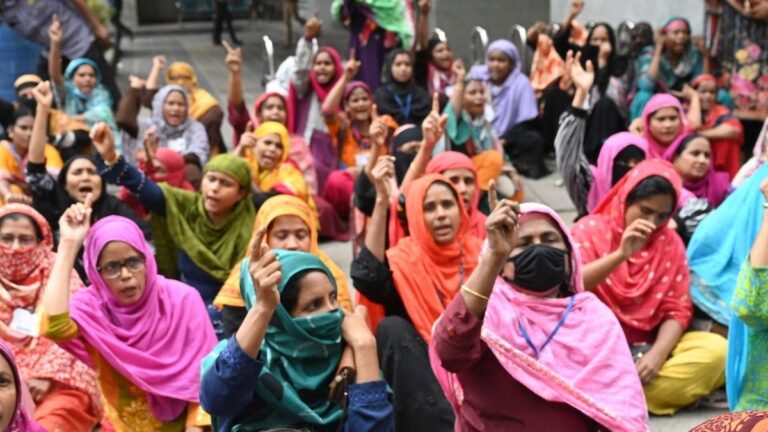[ad_1]
Mond Iftekharul Haq, an entrepreneur from Rajshahi, Bangladesh, has navigated bureaucratic hurdles to launch an innovative compostable shopping bag made from bioplastic derived from cornstarch granules. Despite the environmental emergency caused by rampant polyethylene pollution, Haq’s efforts toward commercial production were stalled by regulatory delays in obtaining green certification. Recognized as a green product by the Department of Environment (DoE) in March 2023, the venture aims to combat Bangladesh’s environmental crisis and provide a sustainable alternative to polythene bags.
From vision to reality: Establishing Crystal Bio Tech
The establishment of Crystal Bio Tech in Rajshahi’s Godagari district was an important step towards realizing Haq’s vision. Investing around Tk 2 billion, he set up a factory with German technology to manufacture compostable bags. After visiting factories in India and doing extensive research online, Haq decided to help solve the problem of environmental pollution. The factory, located near the city of Rajshahi, imports cornstarch granules, which are then processed into bioplastic bags. Haq’s commitment goes beyond production. He developed a rapid method to test the biodegradability of bags, confirming that they offer a real solution to polyethylene waste.
Overcome regulatory and financial barriers
Despite the obvious environmental benefits, Haq faced significant hurdles in bringing its product to market. Initial hesitation by the Ministry of Environment and a lengthy certification process by Bangladesh University of Engineering and Technology (BUET) led to delays. These bureaucratic setbacks not only stalled production but also led to financial losses for Haq. Additionally, the lack of a dedicated HS code for biodegradable products has increased import duties on cornstarch granules, further increasing production costs. Nevertheless, Haq remains determined, citing the huge global market demand for compostable bioplastic bags as the driving force behind his persistence.
Impact on environmental policy and industry practices
Haq’s work highlights the important intersection between environmental sustainability and regulatory policy. The challenges he faces highlight the need for more streamlined certification processes for green products, which will encourage more entrepreneurs to develop environmentally friendly solutions. Additionally, the Crystal Bio Tech story is a reminder of the potential for existing polyethylene product manufacturers to adapt to and contribute to solving environmental problems. While Mr. Haq awaits further confirmation, his story highlights the far-reaching implications for Bangladesh’s environmental policy and the global fight against plastic pollution.
As the world grapples with the effects of plastic pollution, initiatives like Haq’s compostable bags offer a ray of hope. Crystal Bio Tech’s journey from conception to the brink of commercial production exemplifies the resilience and innovation needed to combat environmental challenges. Although regulatory and financial hurdles remain, the potential impact of such green alternatives on the world’s ecosystems and economies cannot be underestimated. Haq’s determination not only paves the way for a cleaner Bangladesh, but also signals a pivotal shift towards sustainable industry practices around the world.
[ad_2]
Source link


